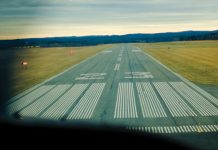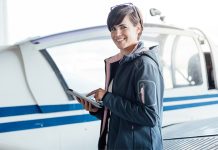Your choice: cultivate this so-called ‘soft’ skill or expose yourself to hard consequences
Researching this article, I came across the website FairyGodBoss which declared: ‘Forget hard skills! This number one soft skill will get you the job!’
The number one soft skill? Situational awareness. According to the site, ‘soft skills’ are critical thinking, organisation and problem solving. Situational awareness sits in this skill set and is a learned technique that is essential for those acting in a role where factors are constantly changing. I have only one quibble: Soft hardly seems the right word for such a fundamental skill.
As you might expect, aviation was listed as the number one career for which situational awareness is an essential skill. Human error is the primary cause of general aviation accidents, from fuel issues to flight into terrain to weather accidents – the phrase ‘loss of situational awareness’ is a frequent feature on ATSB aviation accident reports.
What is situational awareness?
In simple terms, situational awareness is being aware of what is happening around you in the context of where you are, where you are supposed to be and whether anyone or anything around you is a threat to your health and safety.
For a pilot, situational awareness means having a mental picture of the existing inter-relationship of location, flight conditions, configuration and energy state of your aircraft, as well as any other factors that could affect its safety, such as proximate terrain, obstructions, airspace reservations and weather systems (Skybrary online)
According to research conducted by Mica Endersley, a leading expert on situational awareness and former Chief Scientist of the United States Air Force, the 3 key elements are:
- perception
- understanding
- projection.
Perception
Perception is achieved as a result of data. This is the information absorbed about your surroundings, both inside the aircraft and out: the data from your flight deck/EFB – airspeed, engine monitoring, position, traffic; from your radio – whereabouts of other aircraft, changes in weather, clearances; from outside the aircraft – weather, conditions at the airport, other traffic sighted visually.
Understanding
Our observations are used to build a visual picture of our surroundings which is added to our experiences and knowledge stored in our memory. By this method, we build a mental model of our situation, which is constantly updated. For example, in receiving a weather update inbound for an airport and discovering the wind has a crosswind component of 20 knots, we may fly overhead and check the windsock.
Projection
Having built up a picture of what to expect, we combine information and experience to formulate a potential plan, in this case to land elsewhere, if what we see is confirmed by what we heard and knowing 20 knots is above the crosswind capability of our aircraft.
How is situational awareness compromised?
A loss of situational awareness is generally reflected by being caught unawares. It’s a typical flaw of being a human – tiredness, distraction, poor communication, stress. These are often caused by being overloaded, which in turn is caused by a pile on of events such as poor weather, high workload and time pressures.
A loss of situational awareness is generally reflected by being caught unawares.
Warning signs that your situational awareness is starting to degrade include:
- memory degradation: for example, not remembering whether you’ve asked for clearance or changed a tank
- confusion: about where you are, what you’re doing or what you’re hearing/reading
- too much head-down time: in an attempt to ‘pull things together’, it’s easy to focus on one thing, such as your maps or EFB, to the exclusion of visual/aural tasks
- non-compliance: descending below minimums, incorrect altitude for top of descent, incorrect approach speed, forgetting a radio call.
- basically, if you’re behind the aircraft and are feeling an uncomfortable level of stress and discomfort, it’s likely your situational awareness is compromised.
How is situational awareness restored?
For all skills, soft or not, practice is vital. Building situational awareness begins as part of learning to fly, but maintaining it is a life-long habit. Planning ahead is an important part of developing and maintaining excellent situational awareness skills. As Louis Pasteur said, ‘Fortune favours a well-planned mind.’
Every flight begins on the ground. Have a flight planning checklist and ensure every item is cross checked before you even enter the aircraft: alternates, weather-related plans, potential aircraft issues, passenger concerns and your mental and physical wellbeing, are all considerations to be taken into account while you’re still on the ground.
Every flight begins on the ground.
Awareness is the key word here. Know yourself and what works for you and your particular strengths and weaknesses. If radio calls are your downfall, have a written script in preparation for your calls. If your memory skills aren’t what they once were, set alarms to remind you to change tanks.
Remember the golden rule of ‘aviate, navigate, communicate’, avoid fixating on one problem and always make sure you’re not behind the aircraft.
And, if something feels wrong, that’s because it is wrong. Never be afraid to ask for help.
Tools for the situational awareness toolbox
Currency: A tough one at the moment, but one flying school in NSW has come up with an innovative idea to assist pilots with the pain of not being able to fly while under lockdown, allowing them to keep their skills from deteriorating.
WardAir in Bathurst has implemented a virtual version of their controlled airspace (CTA) weekends. ‘The objective of a virtual CTA trip is to cover as much procedural knowledge about controlled and restricted airspace and aerodromes as we can in 2 online sessions rather than over 3 days,’ CFI and Director of WardAir, Catherine Fitzsimons, says. ‘We use maps, aerial photographs, sample radio calls, simulated radio emergencies and much more to bring the experience to life for everyone. The virtual trips are a great refresher on CTA/CTR air law, as preparation for a CTA endorsement or PPL training, or as a way to get ready for CTA weekends in the future. The beauty of online flying is that we can be anywhere!’
Participants have said the experience enabled them to not only remain connected to flying, preventing skill degradation, but also to allow them to practice situational awareness skills such as radio calls, emergency procedures and CTA awareness.
Your EFB: AvPlan, OzRunways and Garmin Pilot are feature rich with situational awareness tools. From being able to overlay traffic, weather and active airspace, through to showing the into wind runway, a sudden change in the weather or a newly listed restricted area.
In addition to these 3, the AvTraffic app is capable of broader traffic than the EFBs alone. AvTraffic displays traffic generated by ADS-B units alongside the ‘internal’ traffic of AvPlan and OzRunways. The internal traffic is other users of either program.
Avoid fixating on one problem and always make sure you’re not behind the aircraft.
The app offers audible traffic alerts which you can receive through a Bluetooth-capable headset and also gives colour-coded traffic threat levels, all of which build a picture of the traffic around you.
Webinars and seminars
Many companies are taking advantage of the lockdown by offering educational tools while their clients are stuck on the ground. Webinars, online seminars and tutorials are a great way to keep your skills honed. There’s never been a better time to watch that tute on the G1000, refresh your knowledge of your EFB with a webinar or book in for one of CASA’s AvSafety seminars.
Keeping your knowledge up-to-date is the key to ensuring you maintain confidence, which is a vital part of your situational awareness toolkit. Situational awareness may be a ‘soft skill’ but it’s one that requires constant practice as part of our responsibility to maintaining aviation safety.
Book your place at an AvSafety seminar at casa.gov.au





